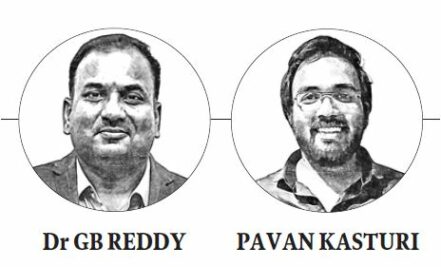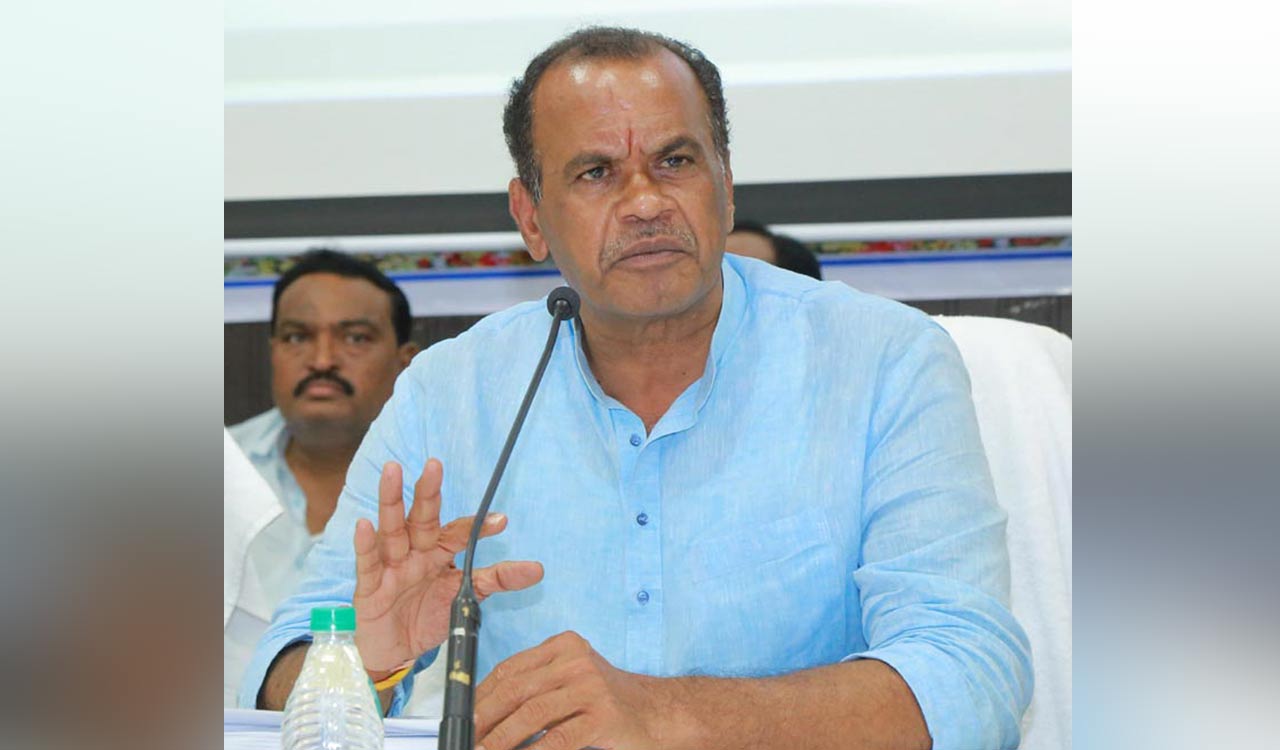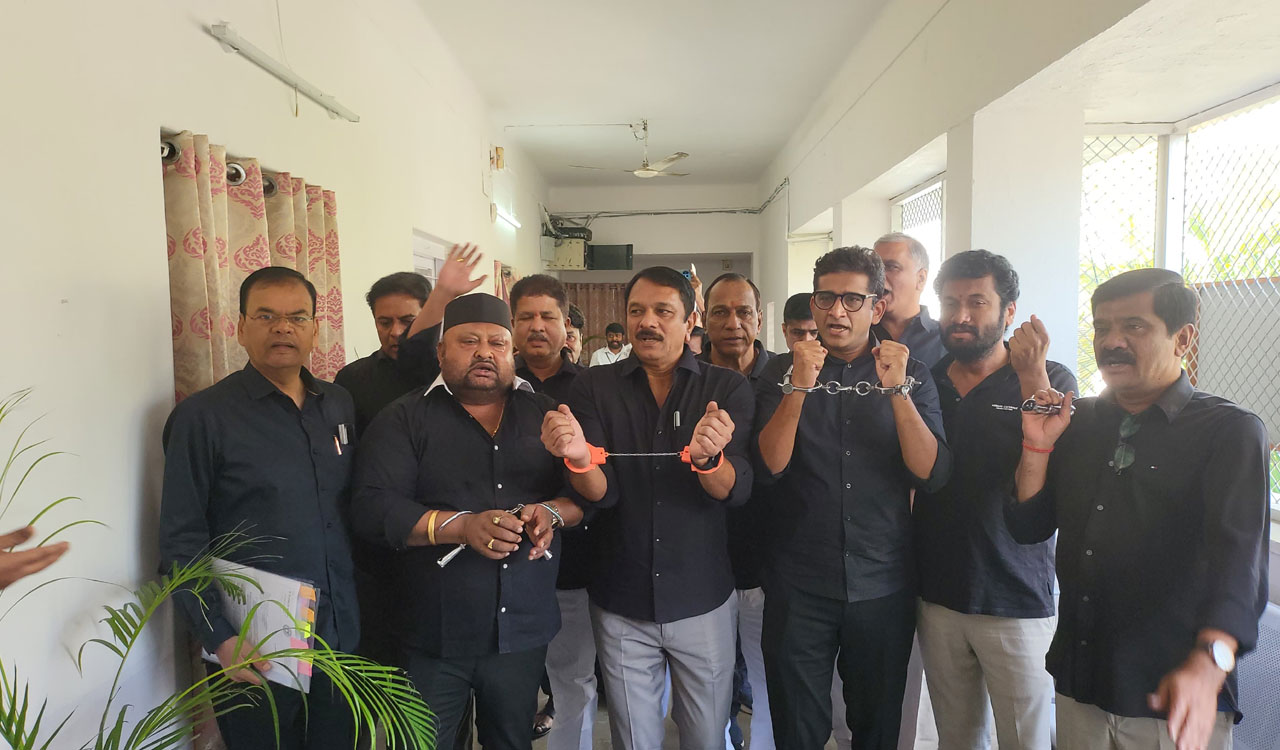Opinion: Democracy and defections
It is high time to insulate Speaker’s office from overt political machinations and preserve its integrity

By Dr GB Reddy , Pavan Kasturi
The Telangana High Court in \\IKuna Pandu Vivekanand v The State of Telangana\\I (WP 11098/2024) directed the Secretary of the Telangana Legislative Assembly to submit the status report of the disqualification applications against BRS MLAs who had switched loyalties to the Congress. In an unprecedented move, the HC has directed the Secretary to place the disqualification petitions before the Speaker for fixing a hearing schedule within four weeks. The court further ordered that if no action is taken within this timeframe, the writ petitions disposed of with the above directions would be reopened suo motu, and appropriate orders would be issued.
Back in Focus
The Tenth Schedule of the Constitution has again grabbed attention, but not for the best reasons. Political morality and loyalty are rare commodities in modern politics. All political parties practice different standards of adhering to the Constitution depending on the context and political expediency. Probably, there is no exception to this phenomenon. The elected legislators often resort to defections in the name of coming back to the parent party, developing the constituency, respecting the sentiments of supporters and helping the supporters through the government, etc.
The anti-defection law, which was introduced through the 52nd Constitutional Amendment in 1985 to check \\IAya Ram Gaya Ram\\I politics and aimed at curbing political opportunism and ensuring stability, has largely failed to be effective. Despite its intentions, the law is weakened by loopholes and the unchecked authority of the Speaker to decide disqualifications, often without a clear timeline.
Interestingly enough the Tenth Schedule does not mandate the Speaker to give up party membership and neither does any such convention exist which is uniformly followed. Thus, a constitutional dilemma that persists is over whether a Speaker affiliated with the ruling party should be entrusted with the responsibility of deciding disqualification applications, which could potentially favour their own party. The Supreme Court (SC) brought this issue to the forefront in its many landmark judgments but most importantly in \\IKeisham Meghachandra v the Speaker Manipur Legislative Assembly \\I(2020).
Speaker’s Role
To understand this judgment, one must first grasp the Speaker’s role in Indian polity as a disciplinarian, with the authority to suspend members and carry out quasi-judicial duties and functions as a tribunal. According to Paragraph 6 of the Tenth Schedule, the Speaker has the exclusive authority to disqualify elected members for defection, based on a petition filed by any House member. However, the issue lies in the Speaker being elected from the ruling party, which has resulted in numerous instances where the Speaker has acted in favour of the ruling party’s interests by delaying the disqualification process. This issue was highlighted by Justice Verma in the \\IKihoto Hollohan v Zachillhu\\I, (1992) judgement where he proposed an independent authority to handle defection issues, arguing that the Speaker’s decisions often undermine parliamentary democracy.
In the Kihoto case, the SC addressed two pivotal issues within the anti-defection law that were challenged on constitutional grounds. The judgement examined whether the Speaker, often affiliated with a political party, should have the authority to decide on disqualifications. While the majority upheld this power, arguing it would be unfair to distrust the Speaker, the minority cited the Constitution’s framers, who preferred such powers be vested in the President or Governors on the Election Commission’s advice.
The court also considered if Paragraph 6(1) of the Tenth Schedule, granting finality to the Speaker’s decisions, excludes court jurisdiction. It concluded that the Speaker acts like a tribunal, and judicial review remains available under Articles 136, 226 and 227, but only in cases of actions that are ultra vires, mala fide, or a misuse of power. Judicial review is not allowed at an interlocutory stage, and there is no timeline for the Speaker’s decision, which ruling parties have exploited.
Hence, the three-judge bench of the SC in \\IKeisham\\I (2020) significantly limited the Speaker’s powers by allowing judicial review before the Speaker’s decision. The court interpreted \\IKihoto Hollohan\\I (1992) to conclude that inaction by the Speaker is not protected by the finality clause in Paragraph 6. The SC also urged Parliament to consider establishing an independent tribunal to handle disqualification matters, proposing a tribunal headed by a retired SC judge at the national level and a retired Chief Justice of a High Court at the State level. However, this proposal could disrupt the separation of powers, potentially allowing judicial overreach into political matters.
The issue at hand is that rulings like \\IKeisham \\I(2020) and \\IKuna Pandu\\I (2024) can blur the lines between judicial and legislative functions, risking the separation of powers principle. This tension is evident in recent remarks by the Maharashtra Speaker, who subtly criticised the SC’s directive in \\ISunil Prabhu v Speaker, Maharashtra State Legislative Assembly \\I(2023) on Shiv Sena MLAs’ disqualification, emphasising mutual respect and not to supersede over other branch powers, and cautioning against rushed judgements.
Critical Lessons
There are critical lessons for the judiciary, legislature, and citizens in these situations. Firstly, the doctrine of separation of powers is essential to maintaining balance in governance. Any overreach or adventurism by the judiciary into the domain of others risks its authority, aligning with Alexander Hamilton’s Federalist Paper No. 78 observation that the judiciary could become “the least dangerous branch” without enforcement powers, ie, the purse or the sword.
Secondly, legislators must distinguish whether judicial actions genuinely infringe on their powers or serve the broader goal of democracy. They should acknowledge if the judiciary’s intervention is necessary to uphold constitutional principles rather than dismiss it as the “tyranny of the unelected.” If parliamentarians perceive judicial intervention as overreach, they could consider constitutional amendments.
A practical approach might be to adopt Bangladesh’s model, where defection cases are referred to the Election Commission (EC). It is trite to recall the recommendation of the National Commission to Review the Recommendation of Working of the Constitution (NCRWC) that the power to decide disqualification on the ground of defection should vest in the EC instead of the Chairman or the Speaker of the House concerned. The Law Commission of India in its 255th report (2015) also recommended a constitutional amendment vesting such power with the President/Governor acting on the advice of the EC as this would also help in preserving the integrity of the Speaker’s office. It is high time to insulate the Speaker’s office from overt political machinations.
The court’s proactive role in the instant case deserves recognition, as its directives strive to uphold the Constitution, acting as the sentinel on the qui vive. When legislative inertia prevails, judicial activism becomes unavoidable to protect constitutional values.
Lastly, citizens must exercise their voting rights to reject defectors in elections, thereby preserving the integrity of democratic mandates. Hence, only through this shared responsibility, can democratic integrity be truly maintained and strengthened.

(Dr GB Reddy is Senior Professor at University College of Law and Pavan Kasturi is Research fellow, Osmania University, Hyderabad)
Related News
-
Opinion: Constitution and Preamble, an unbreakable marriage
-
Telangana Assembly witnesses heated debate over Minister Komatireddy’s remarks
-
Telangana High Court strikes down amended local status rules for PG medical admissions
-
Wearing black dress and handcuffs, BRS legislators demand discussion on Lagacherla
-
Cartoon Today on December 25, 2024
7 hours ago -
Sandhya Theatre stampede case: Allu Arjun questioned for 3 hours by Chikkadpallly police
7 hours ago -
Telangana: TRSMA pitches for 15% school fee hike and Right to Fee Collection Act
8 hours ago -
Former Home Secretary Ajay Kumar Bhalla appointed Manipur Governor, Kerala Governor shifted to Bihar
8 hours ago -
Hyderabad: Organs of 74-year-old man donated as part of Jeevandan
8 hours ago -
Opinion: The China factor in India-Nepal relations
8 hours ago -
Editorial: Modi’s Kuwait outreach
8 hours ago -
Telangana HC suspends orders against KCR and Harish Rao
9 hours ago




